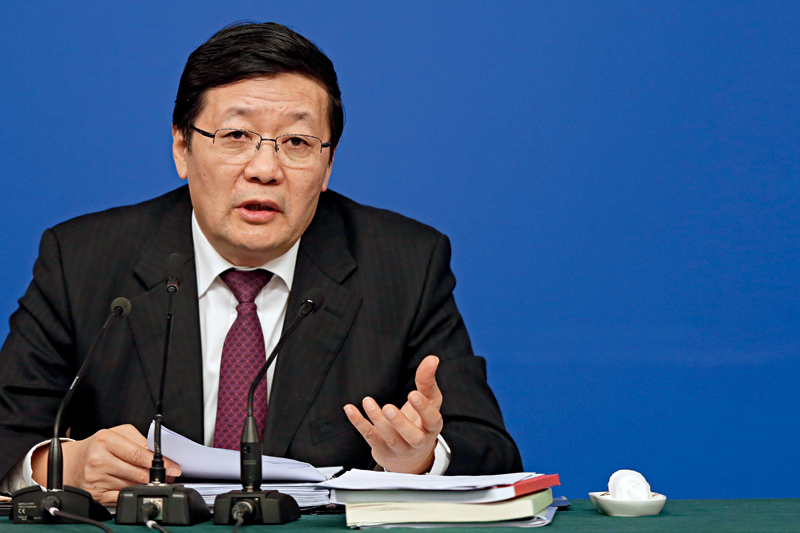Former Finance Chief Suggests Direction for Supply-Side Reform

China must emphasize supply-side structural reform in its economic policymaking, as fiscal and monetary stimulus will have limited ability to propel growth going forward, the country’s former finance minister said.
Last year’s better-than-expected economic growth of 6.9% reflected positive trends in the Chinese economy, as government-guided supply-side reform gradually took effect, Lou Jiwei said at a forum over the weekend. Lou was China’s finance minister from 2013 to 2016, and is now head of the National Council for Social Security Fund.
In the West, “supply-side reform” was made famous during the Reagan administration, and has often meant reductions of taxes and regulation. The term has become popular in China in recent years, but here implies reducing overcapacity and focusing on the quality, rather than speed, of growth.
Lou identified several areas on which reform should now focus, including the free movement of productive elements like people and the market-oriented use of farmland; the streamlining of administrative procedures and lowering of taxes and fees; opening up further to the outside world; and defusing financial risks.
These measures could remedy systemic distortions hurting overall economic efficiency and unleash vitality, which would assist “high-quality growth,” Lou said.
Structural reform will underpin growth for China in the coming years, because the effects of fiscal and monetary stimulus measures — which China has used to shore up the economy for years — are waning, Lou said.
Regarding monetary policy, Lou said that a stimulus would provide limited traction for growth and may funnel credit into banking sectors instead of the real economy.
Local governments can no longer employ fiscal spending to finance infrastructure projects, Lou said, which they had used for years to prop up growth and drive urbanization, but which led to runaway levels of debt.
China still has room to cut individual income taxes in order to reduce the economic burden for low- and middle-income population segments, he said, adding that provincial and local governments need to further trim unnecessary administrative fees in a bid to reduce costs for local businesses.
Contact reporter Pan Che (chepan@caixin.com)

- 1China Officials Dismiss Tax Hike Rumors After Tech Selloff
- 2Cover Story: How Gutter Oil Became a Prized Fuel for International Airlines
- 3Prominent Chinese Journalist Liu Hu Detained by Police in Chengdu
- 4Maersk Unit Takes Over CK Hutchison Panama Ports After Court Ruling
- 5China Provinces Set Cautious 2026 Growth Targets
- 1Power To The People: Pintec Serves A Booming Consumer Class
- 2Largest hotel group in Europe accepts UnionPay
- 3UnionPay mobile QuickPass debuts in Hong Kong
- 4UnionPay International launches premium catering privilege U Dining Collection
- 5UnionPay International’s U Plan has covered over 1600 stores overseas





